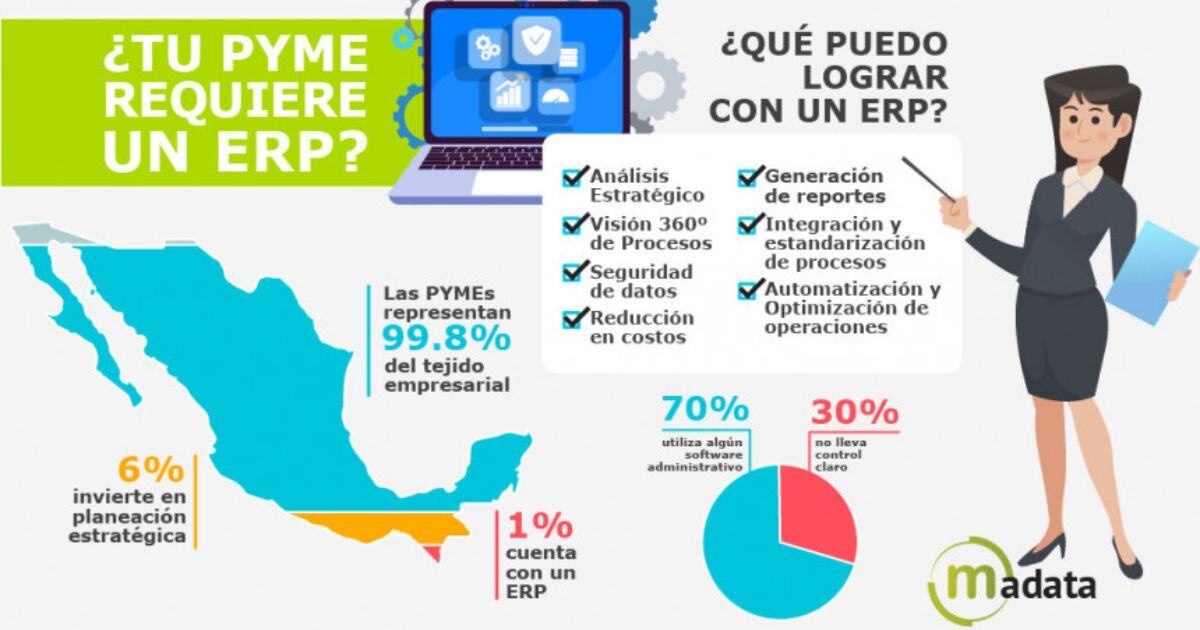Seamless collaboration across different business departments is essential for efficiency and growth. However, many companies struggle with siloed teams, inconsistent data, and inefficient workflows. Enterprise Resource Planning (ERP) systems provide a solution by centralizing data, automating processes, and fostering real-time communication across an organization.
This blog explores how ERP systems enhance collaboration, eliminate data silos, and improve teamwork. We’ll also discuss how MaData’s ERP solutions empower businesses to work smarter and more efficiently.
The Importance of Seamless Collaboration in Modern Businesses
Effective collaboration between departments keeps business operations running smoothly. Productivity increases, decision-making improves, and customer service is enhanced when teams work together efficiently. However, many businesses face common challenges when teams operate in silos.
Some of the biggest challenges include:
- Miscommunication: When teams don’t have access to the same data, they can misinterpret information. This can lead to mistakes and slow down processes.
- Redundant tasks: Without an integrated system, multiple departments may enter the same data manually, wasting time and increasing the risk of errors.
- Lack of real-time data: Decision-making suffers when teams do not have access to up-to-date and accurate data, leading to inefficiencies and missed opportunities.
These challenges create barriers to effective collaboration and slow down business operations. ERP systems address these issues by creating a unified platform for collaboration, ensuring teams have access to real-time information and can work together efficiently.
How ERP Unifies Business Processes Across Teams
ERP systems bring all business processes under one platform, ensuring teams work with the same up-to-date information. This integration streamlines operations and promotes collaboration.
Centralized Data Management for Improved Decision-Making
Accessing accurate information becomes difficult when businesses store data in different locations or software systems. ERP systems centralize data, making it easily accessible to all authorized employees. This allows departments to base their decisions on real-time insights.
Real-Time Access to Shared Information Across Departments
An ERP system ensures that all departments have immediate access to shared data. For example, finance teams can track sales transactions as they happen, and inventory managers can adjust stock levels based on real-time sales data. This transparency eliminates bottlenecks and ensures smooth collaboration across departments.
Reduce Data Silos and Enhancing Communication with ERP
Data silos occur when information is stored in separate systems that do not communicate with one another. This fragmentation leads to inefficiencies and misalignment between teams. ERP systems resolve this problem by integrating all business functions into a single platform.
How ERP Eliminates Fragmented Data and Improves Workflow Efficiency
Without an ERP system, employees often spend valuable time manually transferring data between different software applications. This process is time-consuming and increases the risk of errors and inconsistencies.
ERP systems enable real-time data flow between departments, ensuring everyone works with accurate and up-to-date information. This integration streamlines processes, reduces redundancies, and enhances workflow efficiency, leading to improved collaboration across teams.
Role-Based Access to Ensure Relevant Teams Have the Right Information
In large organizations, employees often have access to more data than they actually need. This can lead to confusion and inefficiencies. ERP systems address this by providing role-based access, ensuring that employees only see the information relevant to their responsibilities.
This enhances security by restricting access to sensitive data while allowing employees to quickly locate the data they need. By reducing unnecessary data exposure, teams can work more effectively while maintaining strong security measures.
 Examples of Improved Cross-Departmental Collaboration with ERP
Examples of Improved Cross-Departmental Collaboration with ERP
ERP systems improve teamwork by connecting different business functions. Here are some real-world examples of how various departments collaborate more effectively with ERP solutions.
Finance & HR: Streamlining Payroll and Budgeting Processes
Finance and HR teams often work together to manage payroll, benefits, and budgeting. ERP systems automate payroll processing, ensuring timely salary disbursement and accurate tax calculations. Additionally, HR can track employee records, training schedules, and benefits in one system, streamlining administrative tasks.
Sales & Inventory: Ensuring Real-Time Stock Updates and Demand Forecasting
Sales and inventory teams need real-time insights into stock levels to prevent shortages or overstocking. With ERP systems, sales teams can check product availability instantly, while inventory managers can adjust stock based on demand forecasts. This coordination reduces costs and improves customer satisfaction.
Project Management & IT: Coordinating Resources and Tracking Progress
ERP systems integrate project management tools, allowing teams to assign tasks, set deadlines, and track progress in real time. IT teams can ensure system stability while project managers oversee resource allocation, improving overall efficiency and collaboration.
How ERP Enhances Project Management and Teamwork
Managing projects efficiently requires seamless coordination between teams. ERP systems enhance project management by automating tasks and integrating communication tools.
Task Automation and Workflow Tracking for Improved Efficiency
ERP platforms automate routine project management tasks such as scheduling, task assignments, and approval workflows. This automation reduces manual workload, ensuring that employees focus on high-priority initiatives.
Real-Time Collaboration Tools Within ERP Platforms
Many ERP systems include built-in collaboration features such as shared dashboards, document management, and discussion forums. These tools allow teams to communicate effectively and track project updates in real time, preventing misalignment and delays.
Integration with Communication Tools Like Slack, Microsoft Teams, etc.
Modern ERP systems integrate with popular communication platforms like Slack and Microsoft Teams. This integration enables employees to receive ERP notifications, share files, and discuss tasks without switching between different applications.
 Why Choose MaData IT for ERP Implementation?
Why Choose MaData IT for ERP Implementation?
Selecting the right ERP partner is crucial for achieving seamless collaboration across teams. MaData IT specializes in designing ERP solutions that align with business needs and enhance cross-departmental workflows.
Overview of MaData’s Expertise in ERP Solutions
MaData is a trusted provider of ERP consulting and implementation services, helping businesses streamline operations and improve collaboration. With expertise in ERP integration, cloud solutions, and IT infrastructure, MaData ensures that organizations can optimize their workflows and leverage technology to scale efficiently. Our team specializes in SAP ERP solutions, offering tailored implementations that align with business goals and industry-specific needs.
How MaData Customizes ERP Systems for Seamless Team Collaboration
At MaData, we recognize that every business has unique challenges and operational requirements. Our ERP solutions are tailored to improve team collaboration by integrating key business functions, automating processes, and ensuring real-time data synchronization. We design ERP platforms with role-based access, AI-driven insights, and seamless integration with other enterprise technologies to maximize efficiency.
With a focus on security, scalability, and ease of use, MaData helps businesses transition to a more connected and agile digital ecosystem.
Get Started with a Smarter ERP Solution from Madata IT Today
ERP systems are essential for breaking down silos and enhancing collaboration across teams. By centralizing data, improving communication, and streamlining workflows, ERP solutions drive efficiency and innovation in modern businesses.
At MaData, we help organizations implement ERP systems that promote seamless teamwork and data-driven decision-making. Download our guide, "The Ultimate Guide to ERP Implementation: A Step-by-Step Approach," to learn how ERP can transform your business.







